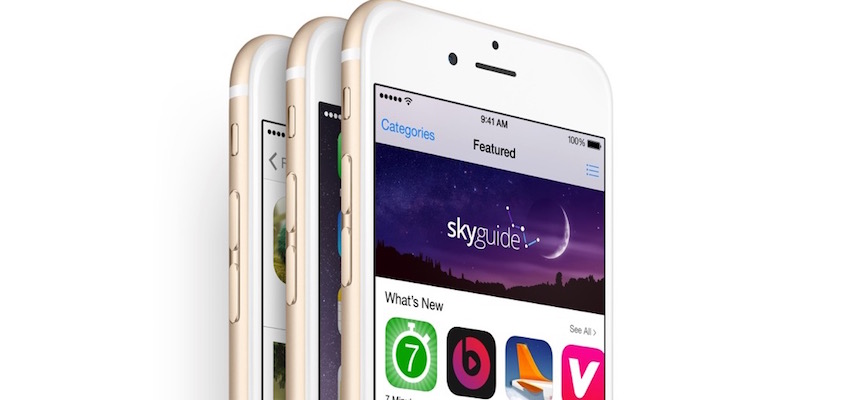Lumos Labs Fined $2 Million for Claiming Its Apps Improved User Memory

Toggle Dark Mode
Popular app developer, Lumos Labs, has been hit with a hefty $2 million fine for reportedly making unsubstantiated claims about its app’s effects on memory and cognition.
Lumos Labs had claimed that by playing on its luminosity app for between 10 and 15 minutes per week, users would experience an improvement in their memory and brain function, and would perform better at school and work. The company also claimed that the app would slow the onset of dementia and reduce cognitive impairment.
 As it turns out, the claims made by Lumos Labs weren’t actually backed up by any, you know, science. Not only that, but the testimonials from the company also were not trustworthy, according to the FTC, meaning that they were either made up for altered in some way. Some of them were also produced only after they were submitted as contest entries, with prizes being things like iPads and round-trip holidays to San Francisco.
As it turns out, the claims made by Lumos Labs weren’t actually backed up by any, you know, science. Not only that, but the testimonials from the company also were not trustworthy, according to the FTC, meaning that they were either made up for altered in some way. Some of them were also produced only after they were submitted as contest entries, with prizes being things like iPads and round-trip holidays to San Francisco.
Apart from the $2 million fine that Lumos has to pay, it also has to inform subscribers, who pay $14.95 per month or the lifetime membership of $299.95, of the fact that it had lied, and tell them how they can easily cancel their subscription.
“Lumosity preyed on consumers’ fears about age-related cognitive decline, suggesting their games could stave off memory loss, dementia, and even Alzheimer’s disease,” said the FTC’s Director of the Bureau of Consumer Protection in a statement. “But Lumosity simply did not have the science to back up its ads.”
Luminosity itself launched back in 2007, and had over 50 games to its name, with all of those games supposedly meant to improve the cognitive functions of the user’s brain.
It’s important to note that science does not yet know exactly how to prevent Alzheimer’s disease, however there are ways that people can change their lifestyle to minimize it.
“If we could keep people relatively symptom free for 5 years longer, then half of the dementia cases would disappear,” said James Becker, a university of psychiatry at the University of Pittsburgh School of Medicine, in an interview with Today. “If we could keep them symptom free for 10 years longer, all dementia would be gone.”
It’s also important to note that we don’t necessarily know that the Luminosity app doesn’t help brain cognition, we just know that there’s no science to claim that it does, like Lumos Labs was claiming.
 The app store has become a global phenomenon, however with so many millions of apps, it’s impossible to monitor them all, especially the ones that seemingly don’t do any harm, like Luminosity.
The app store has become a global phenomenon, however with so many millions of apps, it’s impossible to monitor them all, especially the ones that seemingly don’t do any harm, like Luminosity.
Apple has long tried to keep a close eye on the App Store, far closer an eye than the likes of Google and Microsoft keep on their respective app stores. For example, Apple has to approve every app before it is able to be sold through the app store, and sometimes it will not approve apps for reasons that seem mundane.
For example, when the iPhone 6s was first released, a developer by the name of Ryan McLeod developed an app called “Gravity,” which was able to use 3D Touch information to determine the weight of items, thus allowing users to weigh items on their phone’s screen. Pretty cool idea, huh? Unfortunately, the app was rejected by Apple, which said that the “concept of a scale app was not appropriate for the App Store.”
It’s really not clear exactly why Apple didn’t think the idea was appropriate, and Apple never responded with any comments regarding the situation, beyond the comment in the rejection notice. Some suggests that Apple might have been worried that people might use the app to weigh drugs, however drug dealers would probably want to spend the $20 for a more accurate scale.
The FTC has been keeping a watchful eye on developers of late, especially large ones like Oracle, which recently settled with the FTC out of court for not letting users known that Java might not have been fully updated or secure on their computer.
According to the FTC, Oracle portrayed Java as up to date and secure, even though that wasn’t always the case. So, while users may have thought that patches they were installing protected them against any vulnerabilities, in reality those patches might not have been enough.
Learn More: iOS 9.2’s Secret Feature Will Allow You to Delete Those Pesky Stock Apps






